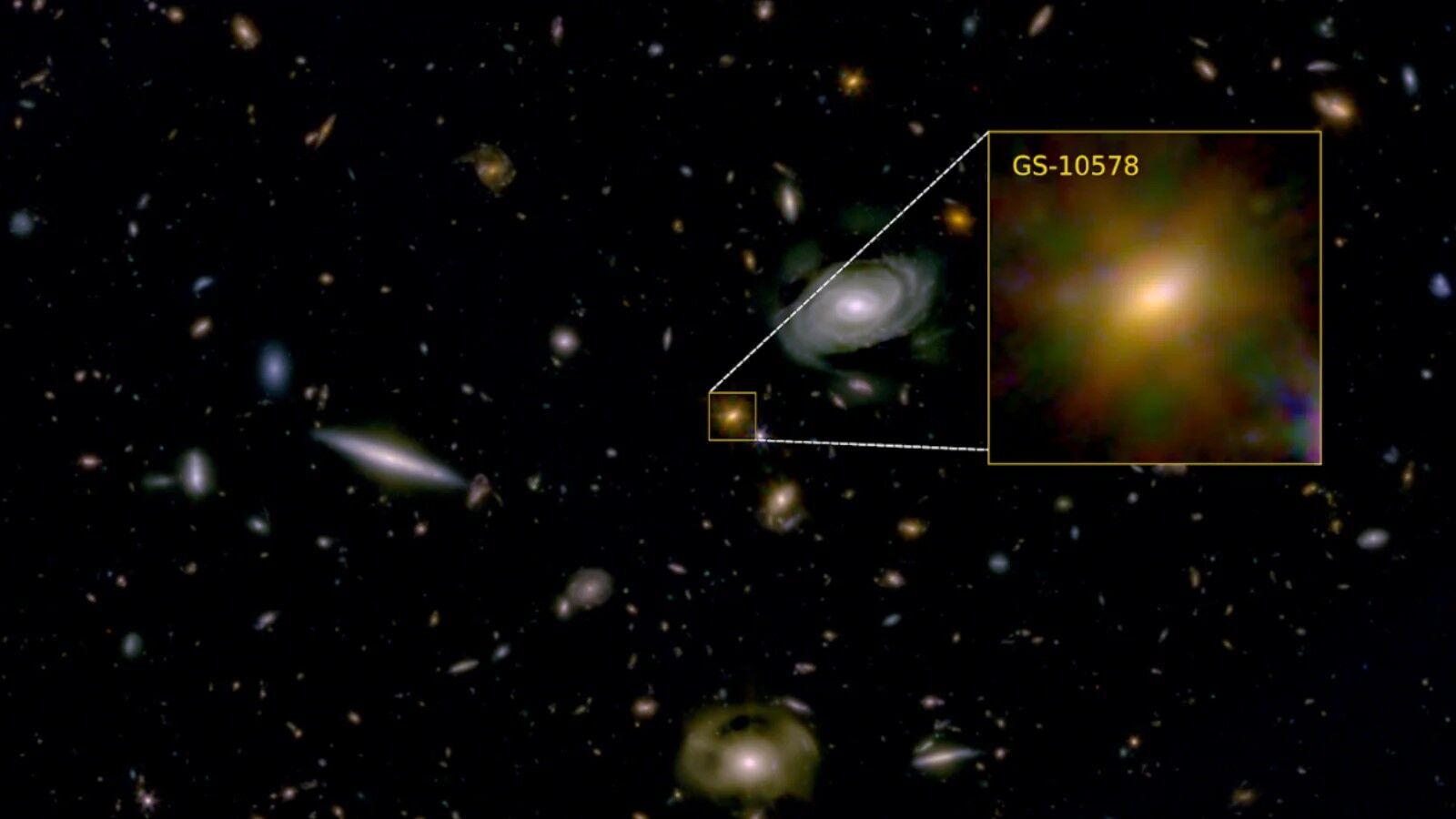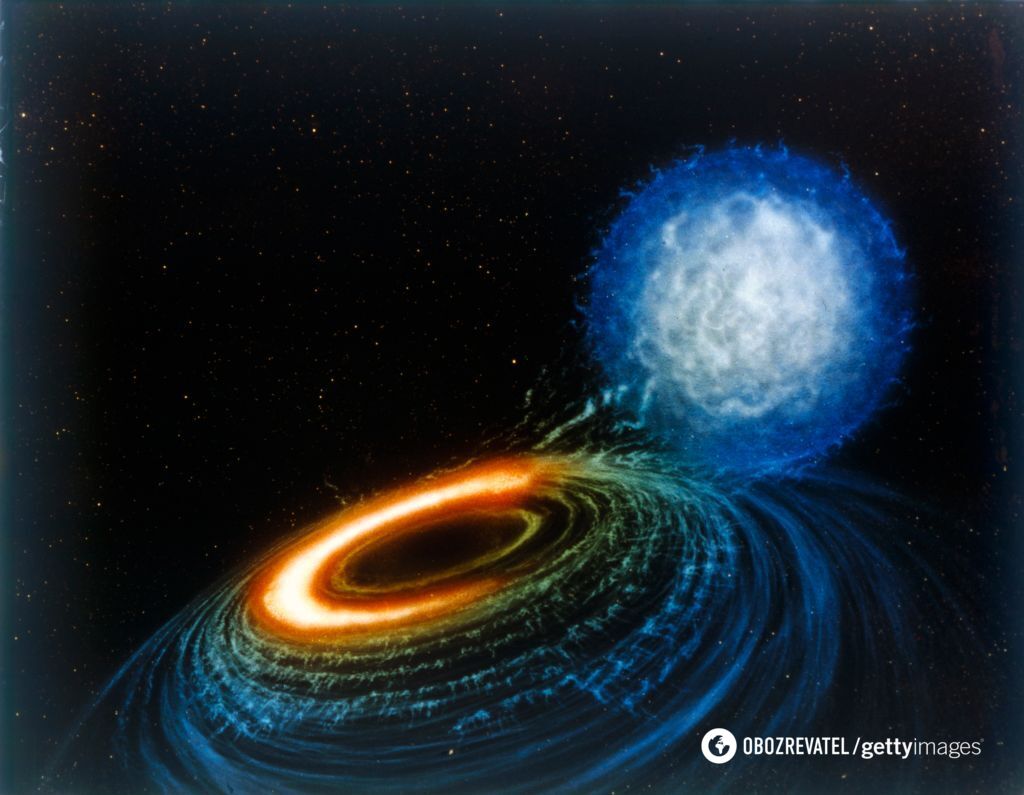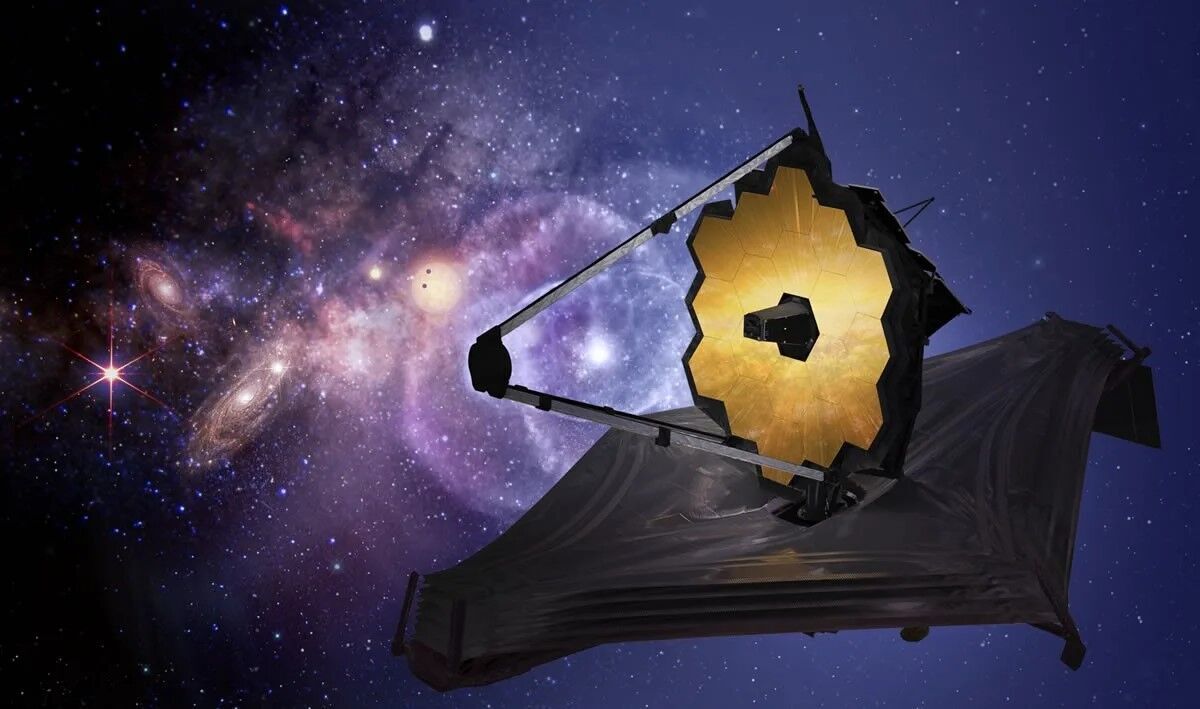News
Astronomers spot black hole that "killed" young galaxy the size of the Milky Way
With the help of the James Webb Space Telescope (JWST), astronomers observed a supermassive black hole in the early Universe killing its galaxy by depleting resources. This "galactic starvation" occurred instantly due to gas winds blowing at a speed of more than 3.5 million kilometers per hour.
Scientists have recorded this phenomenon in a galaxy similar in size to the Milky Way. The new discovery shows that the black hole actively prevents the formation of stars, SciTechDaily reports.
The 'dead' galaxy
An international team of experts led by the University of Cambridge used the James Webb Space Telescope to observe a galaxy in the early Universe formed about two billion years after the Big Bang.
Like most large galaxies, it has a supermassive black hole in its center. However, according to scientists, this galaxy is actually "dead" because it has almost stopped forming new stars.
The GS-10578 galaxy is named the Pablo Galaxy in honor of the researcher who decided to observe it in detail. According to scientists, it is massive for such an early period in the Universe: its total mass is about 200 billion times the mass of our Sun, and most of its stars formed between 12.5 and 11.5 billion years ago.
"In the early Universe, most galaxies form many stars, so it's interesting to see such a massive dead galaxy at this time period," said study co-author Roberto Maiolino, a professor at the Kavli Institute of Cosmology.
Conclusions
Using the James Webb Telescope, the researchers found that the supermassive black hole at the center of the Pablo Galaxy is pushing out a huge amount of gas at a speed of more than 3.5 million kilometers per hour. For comparison, this is 1500 times faster than the maximum speed of a Lockheed Martin F-16 jet fighter.
Scientists emphasize that the gas velocity is high enough to overcome the gravitational influence of the galaxy and kill it.
The team of experts also found that the mass of the gas flow from the Pablo Galaxy was greater than the gas needed to form the basis of a new star. Thus, the supermassive black hole is dampening the birth of stars in this early galaxy.
"We found the culprit. The black hole is killing this galaxy and keeping it dormant, by cutting off the source of ‘food’ the galaxy needs to form new stars.," said Francesco D'Eugenio, a member of the research team from the Cambridge Kavli Institute for Cosmology.
"We knew that black holes have a massive impact on galaxies, and perhaps it’s common that they stop star formation, but until Webb, we weren’t able to directly confirm this," said Maiolino. "It’s yet another way that Webb is such a giant leap forward in terms of our ability to study the early universe and how it evolved," Roberto Maiolino summarized.
Only verified information is available on OBOZ.UA Telegram channel and Viber. Do not fall for fakes!






























